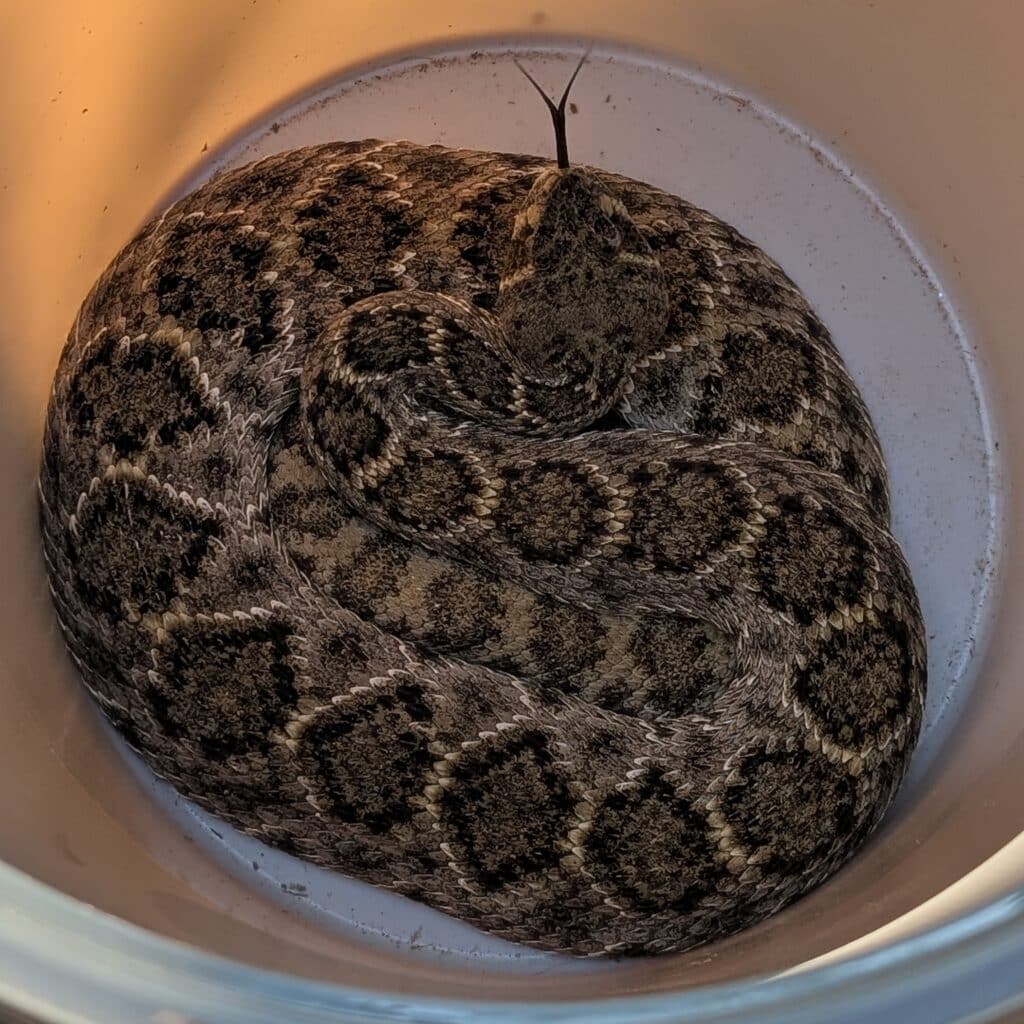Snakes, those serpentine slitherers, are found in abundance across the United States, with Texas boasting a particularly diverse population. These cold-blooded creatures are ectothermic, meaning they rely on their environment to regulate their body temperature. As a result, the snakes of the lone star state are most active during the warmer months when the sun provides the heat they need.
Texas’s varied landscapes, from the humid Gulf Coast to the arid western plains, offer a wide range of habitats for snakes. While the state is home to a variety of species, not all are venomous. In fact, most snakes are harmless and play essential roles in the ecosystem. An interesting fact about snakes is their ability to dislocate their jaws, allowing them to consume prey much larger than their heads. Since snakes eat their prey whole, this skill is especially useful!
Why Shouldn’t I kill it First and Ask Questions Later?
Said simply, snakes are vital components of the ecosystem. As predators, they help control populations of rodents, insects, and other small animals. They also serve as prey for larger predators, such as hawks, owls, and raccoons.
At Prickly Pear, we offer snake removal services, but what we have found is that most snake jobs are actually just rodent jobs in disguise. Which means, the snake you are saying is just there because there is a food source (mice or rats) there. When we remove the food source, the snake will leave on its own. Unlike the small mammals of your neighborhood (like squirrels), snakes are not looking to co habitat with you, just looking for their next meal.
We never recommend killing a snake (even a venomous one), as their benefits usually outweigh the risk. But when they are too close for comfort, seek a professional company, like Prickly Pear, to come remove the snake and relocate it to another area.
In fact, it is often best to treat all snakes as venomous until you are certain that they are not. We have a wealth of information available (thanks to the internet), but please make sure the source is authoritative when you consider your life is at risk based on the information your getting. Prickly Pear highly recommends Texas A&M as the best authority in our state and they happen to produce a great guide for identification.
Signs of Snakes of the Lone Star State on Your Property
If you encounter snakes on your property, it’s important to maintain a safe distance and observe them from afar. Here are some signs that might indicate snake presence:
- Shed Skin: Snakes shed their skin periodically, so finding shed skin can be a sign of their presence.
- Sunning Spots: Snakes often bask in the sun to regulate their body temperature. Look for smooth, flat rocks or logs where they might be found.
- Burrows: Some snakes create burrows in the ground or under objects.
- Rodent Activity Decrease: A sudden drop in rodent populations could indicate a healthy snake population.
Snake Breeding Season
Snake breeding varies depending on the species, but generally occurs in the spring or early summer. After a gestation period, which can range from weeks to months, female snakes lay eggs or give birth to live young. The number of offspring depends on the species.
Making Your Home Less Inviting for Snakes
To reduce the likelihood of snake encounters on your property, consider these tips:
- Habitat Modification: Clear away debris, brush, and tall grass around your home to eliminate potential hiding places.
- Secure Entry Points: Seal any gaps or holes in your home’s foundation, attic, and basement to prevent snakes from entering.
- Reduce Attractants: Remove potential food sources for rodents, such as birdseed and pet food, which can attract snakes.
- Lawn Care: Keep your lawn trimmed short to reduce hiding spots.
- Secure Chicken Coops and Rabbit Hutches: Snakes may prey on poultry or rabbits, so ensure their enclosures are secure.
- Woodpiles: Store firewood away from your home to avoid creating snake habitats.

Sssssummary…
Snakes are fascinating creatures. They live a solitary life, following the warmth of the sun to move about their world and search for tasty snacks. They are (mostly) silent, as they experience the world from a unique angle (their belly) and bathe in the sun. Snakes provide effective rodent control and are most often in your environment to help with a rodent issue. When you encounter a snake, remember, most snakes in Texas are harmless to humans. If you encounter a venomous snake, it’s crucial to maintain a safe distance and contact a professional wildlife removal service like Prickly Pear. We have a herpetologist on staff who is available to our clients for snake identification, removal, and more. You can also see him on the Prickly Pear Youtube channel.
